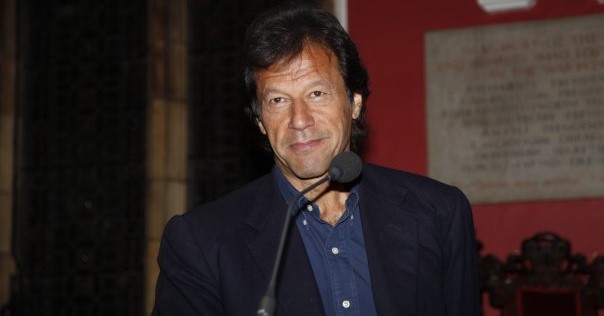
Two days before the 1992 cricket World Cup in Australia and New Zealand began, Pakistan captain Imran Khan was a broken man. Khan, an allrounder, had torn the tendons in his right shoulder.
“I was in no condition to bat or bowl or even do any fielding. I played with pain killers and cortisone injections and after the match, my shoulder would become inflamed. Instead of practicing, I had to rest,” recalled Khan in an interview to Herald magazine in 1992.
“I would not have played normally because the doctor said you just can’t play. And had the team started winning I would have sat outside, but we started disastrously, so I played,” he said in a later interview.
Pakistan won 1 of their first 5 matches in the 1992 World Cup, but ended up winning the tournament. Khan, who was 39 years old at the time, bowled 60 overs in the World Cup while taking only 2 wickets. He was no longer the tearaway quick who terrorized batsmen in the early 1980s. At the World Cup, most of his fast medium offerings were easily flicked fine behind the wicket or waited upon patiently by batsmen standing inside their crease before being hoicked away to square leg.
NO TENDONS, NO PROBLEM
But Khan contributed to his team in other ways. Upon seeing Pakistan lose too many early wickets in their initial matches, he promoted himself up the batting order and averaged 30.83 for the tournament, with the highlight being a knock of 72 in the final against England to help Pakistan set a total of 249/6 from 50 overs.
In cricket, a captain can actually inspire a team. And the best way you inspire is by leading by example.
Imran Khan, former Pakistan cricket captain
Most importantly, Khan made his players believe that the impossible was within reach – and helped them get there.
“The simple thing about cricket captaincy is, it’s the only sport that needs leadership,” Khan later said. “No other sport needs leadership like in cricket. Because the coach is far more important than the captain in most sports. In cricket, a captain can actually inspire a team. And the best way you inspire is by leading by example.”
As the former Pakistan captain said, cricket is different from most other sports. In other words, it’s not football. Football teams, even ones captained by Cristiano Ronaldo, are no different.
A DIMINISHED GREAT
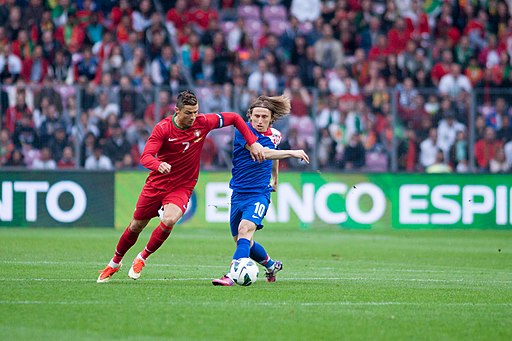
“I’m not the kind of guy who likes to give advice as I prefer to be an example,” said Ronaldo recently when asked by English journalist Piers Morgan on how he imparts advice to younger players.
“Because I’m an example. I’m there every morning and do the same stuff,” Ronaldo said. “I’m probably the first one to arrive and the last one to go out. I think the details speak for itself… This is why I say, I like to lead by example.”
One could argue that Ronaldo, at the moment for Portugal, isn’t quite leading by example. To be fair, the 37-year-old did score a well-taken goal via a penalty and help his side take the lead against Ghana in their eventual 3-2 victory in the Group H fixture of the Qatar World Cup, and another disallowed goal earlier in the game that would have been allowed to stand by a more lenient referee.
However, Ronaldo has been showing clear signs for the past few years that while he remains a dependable finisher, his ability to skedaddle past opponents has in large part deserted him. He either does not, or cannot, press the opposition to the extent required for his team to win the ball or keep the adversary under the pump. In modern football, that is a vice no elite team will brook – unless you’re Portugal, and unless the player in question is Cristiano Ronaldo.
On Thursday, the Portuguese made history by becoming the first player to score in 5 different World Cups. However, there were also occasions throughout the match where he wasted potential goal scoring chances for Portugal.
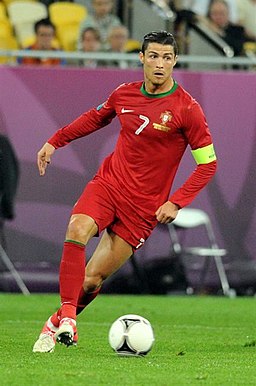
In the 10th minute, Joao Cancelo darted in and put Ronaldo clear on goal inside the Ghana penalty box. However, the Portugal captain’s first touch let him down and the chance was wasted. In the second half, Portugal winger Otávio played in Ronaldo into the Ghanaian box. Ronaldo had to beat Ghana’s defender Alexander Djiku who was in front of him in order to get closer to the goal. The Portugal captain could not. After drilling his shot against Djiku and seeing it rebound off him, Ronaldo slowed down and broke into a trot. Meanwhile, Ghana kicked off a counter-attack from the back even as Ronaldo’s teammates headed for the Portugal half to stem the oncoming assault.
Such snags in Ronaldo’s game are not overnight developments. They have crept in steadily over the past few years, as time pilfered his abilities a day at a time. The Portuguese number 7 remains a magnificent header of the ball – there was a moment early in the first half against Ghana when Bernardo Silva chipped the ball up from the left flank to the back post, which Ronaldo met with a leap that belonged in the NBA. His header went wide of the post, but the threat Ronaldo posed hung in the air.
It is possible that a diminished Ronaldo can still contribute to Portugal’s cause by being a pure poacher. Despite his recent decline as a footballer, he finished as Portugal’s top scorer in the 2022 World Cup qualifiers with 6 goals, with all of his teammates combining to score another 10 goals.
However, better, younger options on the bench mean that Ronaldo’s time as a starter for Portugal is at an end.
RICHES WAITING IN THE WINGS
Diogo Jota of Liverpool, who missed the Qatar World Cup due to injury, is the natural replacement for Ronaldo at centre forward. Jota’s mixture of blistering pace, intuitive link-up play and formidable finishing help his case, though his form has dipped ever since Liverpool signed Colombian Luis Diaz from FC Porto in January this year. While Diaz has had a spectacular start to his Merseyside career, Jota’s attacking gifts, despite his struggles of late, are not in question.
Rafael Leão, named as Serie A’s Most Valuable Player last season after helping AC Milan win the Scudetto, is arguably one of the players being kept out of the Portugal starting 11 due to the inclusion of Ronaldo. Leao has a strong case to start on the left of Portugal’s offence, ideally as part of a front three. Ronaldo’s selection at centre forward forces Portugal coach Fernando Santos to choose between João Félix or Leao on the left flank, whereas Felix can be played in a central role if Ronaldo is not an automatic pick.
The 23-year-old Leão is, after Paris Saint-Germain’s Kylian Mbappé, probably the most adept in Europe at dribbling past his markers on the left flank, doing so with languid grace and a winsome smile on his face. Leão added goals to his repertoire last season, scoring 14 for Milan while assisting a further 12. When rumour abounded that PSG had targeted Leão as a possible replacement for Mbappé in case the Frenchman joined Real Madrid this summer, few questioned its wisdom.
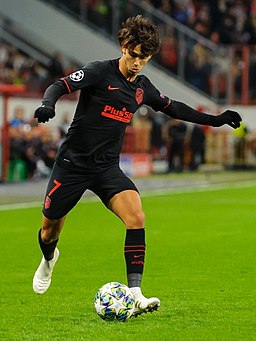
João Félix himself, underplayed by Diego Simeone at Atletico Madrid and excellent during Portugal’s opening match against Ghana on Thursday, also deserves a run in the Portugal side as a centre forward – though not necessarily a conventional one. Félix’s style of play and physical ability will not allow him to be a conventional number 9 but he can be the central striker in a fluid offence who can interchange positions at will during the game.
Gonçalo Ramos, just 21 and of Benfica, is another candidate to play at centre forward with his mixture of pace, ability to dribble past opponents and finding the net.
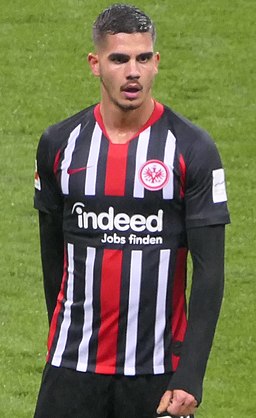
Portugal also have André Silva, a classic poacher who prefers to play inside the penalty box and keep things simple. He is also a good header of the ball, though not as accomplished as Ronaldo is in this regard (who is?). The RB Leipzig striker has 19 international goals from 52 appearances, a decent tally for a back-up striker.
In addition to the above, Portugal also have Bernardo Silva, who can play as a false 9 if necessary.
Portugal have enough quality in their squad to see off opponents less technically gifted than them. When they come up against international heavyweights however, they will need to contest for every ball and convert every half-chance. Ronaldo, in his current iteration, is likely to hurt his team more than help them by starting every match.
WILL SANTOS BITE THE BULLETT?
“You can only be a good captain if you’re not scared to give it up,” said Imran Khan in his interview. “I think it’s very important for any form of leadership that whatever leadership role you have, should not be an end in itself, it should be a means to an end.”
On July 10 2016, Cristiano Ronaldo was stretchered off the pitch inconsolable and in tears during Portugal’s Euro 2016 final against France. The game was only 25 minutes old and Ronaldo spent a large part of the remaining minutes on the touchline, rallying his teammates and yelling his support for them whenever the situation warranted.
If Portugal are to go far in the 2022 World Cup, Ronaldo would help his team’s cause by dropping out of the starting 11 and making a difference from the bench when necessary.
“Cristiano is an amazing example,” said Portugal coach Fernando Santos after the victory. “Today (after the injury) he tried to remain on the pitch. He was very strong in the locker room, he helped all of the boys. That’s the definition of teamwork.”
If Portugal are to go far in the 2022 World Cup, Ronaldo would help his team’s cause by dropping out of the starting 11 and making a difference from the bench when necessary. If Santos’ men do manage to win the World Cup for the first time in Portugal’s history, it will still be Ronaldo, as captain, who hoists the trophy over his head during the post-match ceremony. If Santos persists starting with Ronaldo in every match, Portugal’s iconic number 7 risks holding back a team gifted with attacking riches from fulfilling its true potential.

